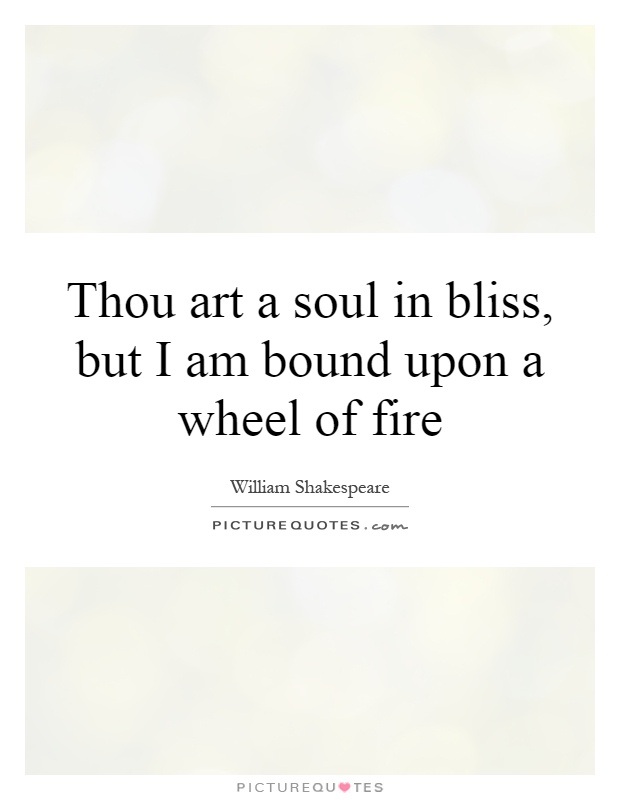Thou art a soul in bliss, but I am bound upon a wheel of fire

Thou art a soul in bliss, but I am bound upon a wheel of fire
The line "Thou art a soul in bliss, but I am bound upon a wheel of fire" is a powerful and evocative statement that captures the essence of suffering and torment. This line is from William Shakespeare's play "King Lear," spoken by the character Edgar in Act IV, Scene VII. In this scene, Edgar is disguised as Poor Tom, a mad beggar, and is speaking to his blinded father Gloucester.The imagery of being "bound upon a wheel of fire" conveys a sense of being trapped in a never-ending cycle of pain and torment. The wheel of fire symbolizes the relentless and agonizing nature of suffering, with no respite or escape in sight. This image is particularly striking as it suggests a form of punishment or torture that is both intense and unending.
On the other hand, the contrast with the line "Thou art a soul in bliss" highlights the stark difference between Edgar's suffering and the imagined state of peace and happiness that someone else may be experiencing. This juxtaposition serves to emphasize the depth of Edgar's despair and the sense of isolation and alienation he feels in his current situation.
The use of the word "soul" in this context also adds a spiritual dimension to the line, suggesting that Edgar's suffering goes beyond physical pain and touches on the very core of his being. It speaks to a profound sense of inner turmoil and anguish that cannot be easily alleviated or understood.
Overall, this line from "King Lear" is a poignant and poignant reflection on the nature of suffering and the human condition. It captures the essence of despair and hopelessness, while also hinting at the possibility of redemption and transformation. Shakespeare's powerful language and imagery in this line continue to resonate with audiences today, reminding us of the enduring relevance and power of his work.












 Friendship Quotes
Friendship Quotes Love Quotes
Love Quotes Life Quotes
Life Quotes Funny Quotes
Funny Quotes Motivational Quotes
Motivational Quotes Inspirational Quotes
Inspirational Quotes